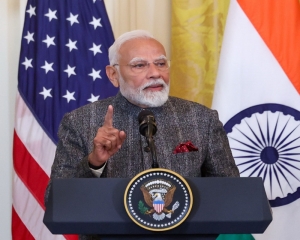In the relentless pursuit of professional success, the lines between work and life often blur, leaving behind stories of missed moments, lost connections and unforeseen struggles
I remember a senior colleague reminiscing about his earlier years in the job. His daughters were small. He was a workaholic and the children would be long asleep when he returned. They would be gone to school by the time he surfaced the next morning. One of the children left a note on her pillow that there would come a time when she might not have time for him. I was talking to a young lady. Her father retired from the services.
He felt lost with more than enough free time on hand. The organisation had taught him to work hard. There were no training manuals to lead a retired life. I met a relative at a wedding. He will superannuate from a senior position in a few months. He sounded uncertain about the future.
He is a scientist and had no hesitation in accepting that he had considered science as a hobby his entire life. Now he was not so certain. In the same function, I caught snatches of conversation between a few gentlemen. An evening, that could have been spent talking about things other than business, had turned into an extension of the workplace. They might not agree with me now. They derive joy from such conversations when still in active service. Will they feel the same after retirement in a few years? I flew with a young IT professional many years ago. He was on the verge of quitting a well-paying senior-level private sector job to join a government company at the mid-management level.
I was confounded till he explained. He was working in a software company with the majority of clients from America. His Indian job required him to work Indian hours. His American clients wanted him to be available for calls when they woke up. He could at least sleep in the night in his new job. I do not know if he found peace. It does not matter if one works in the private sector or with the government.
The first lesson drilled into us when I joined the railway services was that a railway officer is always on duty, 24x7. It sounded glamorous in the heady euphoria of youth. I started believing that stress brought out the best in me. Till it was too late. I developed hypertension, and then diabetes. I also had meltdowns. I have transitioned from being a technocrat manager to exploring creativity.
I write fiction novels, short articles, and stories, and guide others to pursue passions from a bucket list that they could not take up, lost in the quest to earn a living. Many are not so fortunate. They do not even realise that they need to strike a balance or that they need help. Recent statements by a couple of respected business leaders raise issues beyond chuckles and memes. A professional typically spends almost four decades working.
This is 2/3rds of his total life at the time of retirement. Unfortunately, this is the only life he has seen. He has not even been prepared to lead a different later life. It is tougher for women. They are expected to take care of the children also, and sooner rather than later, the birds fly out of the nest. As we grow older, we start equating productivity with longer working hours. We also start believing that health and mental wellbeing, whether working or after retirement, is not important. How wrong we are! Melissa Steginus, mindfulness teacher and productivity coach, reminds us, “Remember that work and life coexist. Wellness at work follows you home and vice versa.”
(The author is an electrical engineer with the Indian Railways and conducts classes in creative writing; views are personal)



























